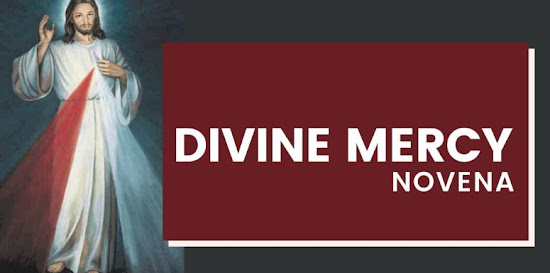Divine Mercy Novena Begins on Good Friday
The Divine Mercy novena, a powerful and spiritually uplifting devotion, begins on Good Friday and concludes on Divine Mercy Sunday.
This nine-day period of prayer and reflection offers believers an opportunity to seek and receive God's mercy, forgiveness, and love. MyMercy Chart In this article, we will explore the significance of the Divine Mercy novena, its origin, and how it is practiced.
What is Divine Mercy?
Divine Mercy is a concept deeply rooted in Christian theology, particularly within the Catholic Church.
It emphasizes the infinite mercy of God towards humanity, highlighting His compassionate nature and willingness to forgive even the gravest of sins.
Through the message of Divine Mercy, believers are invited to approach God with trust, repentance, and a sincere desire for transformation.
The Origin of the Divine Mercy Novena
The Divine Mercy devotion traces its origins to a series of visions and messages received by Saint Faustina Kowalska, a Polish nun, in the early 20th century.
Saint Faustina documented her encounters with Jesus Christ, who revealed to her the depth of His mercy and instructed her to spread this message throughout the world.
The Significance of Good Friday
Good Friday holds immense significance in the Christian faith as it commemorates the crucifixion of Jesus Christ and His ultimate sacrifice for humanity's salvation.
It is on this solemn day that the Divine Mercy novena begins, symbolizing the profound connection between Christ's sacrifice and the abundant mercy that flows from it.
How to Pray the Divine Mercy Novena
Praying the Divine Mercy novena is a simple yet profound practice that involves specific prayers and reflections for each day of the nine-day period.
The novena is typically recited using the Divine Mercy Chaplet, a prayer composed of repeated sequences of the "Our Father," "Hail Mary," and "Eternal Father" prayers.
Day 1: The First Day of the Novena
On the first day of the Divine Mercy novena, believers are invited to contemplate and pray for all mankind, asking God's mercy to be poured out on the whole world.
This day emphasizes the universal nature of God's love and His desire to save all souls.
Day 2: The Second Day of the Novena
The second day focuses on the prayers and intentions for priests and religious. Believers are encouraged to seek God's mercy and guidance for those who have dedicated their lives to serving Him and His Church.
Day 3: The Third Day of the Novena
On the third day, the novena directs our attention towards all devout and faithful souls, praying that they may be strengthened in their faith and receive God's abundant mercy in their lives.
Day 4: The Fourth Day of the Novena
The fourth day of the novena highlights the prayers and intentions for those who have drifted away from the faith or are indifferent towards God. Believers are called to intercede for their conversion and reconciliation with God's merciful love.
Day 5: The Fifth Day of the Novena
The fifth day is dedicated to those who are imprisoned, seeking God's mercy and compassion to touch their hearts, bring them hope, and guide them towards spiritual freedom and transformation.
Day 6: The Sixth Day of the Novena
On the sixth day, believers are encouraged to pray for the souls in purgatory, asking God's mercy to alleviate their suffering and grant them the grace of eternal rest.
Day 7: The Seventh Day of the Novena
The seventh day emphasizes the prayers and intentions for those who are lukewarm in their faith, inviting God's mercy to rekindle their love for Him and inspire a deeper commitment to living a truly Christian life.
Day 8: The Eighth Day of the Novena
On the eighth day, believers are called to pray for those who are facing difficult circumstances or trials, asking God's mercy to comfort them, strengthen their resolve, and provide them with the necessary grace to endure.
Day 9: The Ninth Day of the Novena
The final day of the Divine Mercy novena focuses on praying for souls who have become separated from God, urging believers to intercede for their reconciliation and return to the loving embrace of the Divine Mercy.
FAQs (Frequently Asked Questions)
Q1: Can the Divine Mercy novena be prayed at any time of the year?
Conclusion
The Divine Mercy novena, which commences on Good Friday and concludes on Divine Mercy Sunday, offers believers a profound opportunity to seek God's mercy, forgiveness, and love. By following the nine-day devotion and praying for various intentions, individuals can deepen their understanding of God's infinite mercy and experience transformative spiritual growth.

Comments
Post a Comment